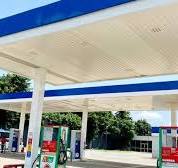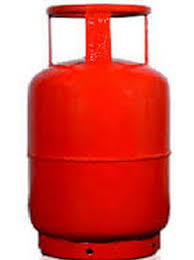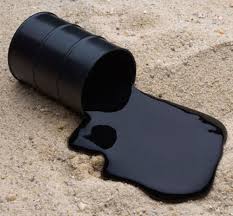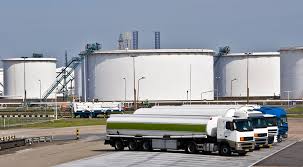Establishing A Compressed Natural Gas (CNG) Refilling and Conversion Hub in Nigeria; The Feasibility Report.

Nigeria, endowed with vast natural gas reserves, is increasingly embracing Compressed Natural Gas (CNG) as a cleaner and more economical alternative to conventional fuels. This transition presents significant business opportunities, particularly in establishing a CNG Refilling and Conversion Hub in Nigeria.
Globally, the demand for natural gas is rising due to environmental concerns, the pursuit of energy security through diversified sources, and its cost-effectiveness compared to petrol and diesel. This global shift has spurred investment in CNG infrastructure and the development of CNG-powered vehicles.
In Nigeria, CNG demand is driven by government initiatives to reduce reliance on imported petrol and fuel subsidies while promoting cleaner energy. The economic advantages of CNG, offering significant cost savings, attract both individual and commercial fleet operators.
Furthermore, CNG’s environmental benefits align with global sustainability goals and contribute to improved air quality. While the CNG market in Nigeria is still developing, it possesses immense growth potential.
Establishing a successful CNG Refilling and Conversion Hub in Nigeria requires careful planning. Strategic site selection is crucial, prioritizing accessibility, proximity to potential customers like transport hubs and industrial areas, and sufficient space for infrastructure. The refilling station requires compressors to pressurize natural gas, storage tanks for the compressed gas, dispensers for refueling vehicles, and robust safety systems.
A conversion workshop is also necessary, equipped with skilled technicians, high-quality conversion kits and tools, and testing facilities to certify converted vehicles. Obtaining necessary government permits and licenses is essential for legal operation. A strong marketing strategy is also vital to attract individual vehicle owners, commercial fleets, and government agencies.
Several trends are shaping the CNG market in Nigeria. Continued government support is expected to further stimulate market growth. Increasing adoption by commercial fleets seeking to reduce fuel costs is another key trend. The potential for local manufacturing of CNG vehicles could significantly boost the market. Finally, expansion of CNG infrastructure, including pipelines and refilling stations, is crucial for wider adoption.
Establishing a CNG hub presents both challenges and opportunities. Significant upfront investment is required for infrastructure. Increasing public awareness and acceptance of CNG is necessary for broader adoption. Ensuring a sufficient supply of trained technicians for conversion and maintenance is important.
Furthermore, expanding the CNG pipeline network and establishing more refilling stations are crucial for accessibility. However, early entrants can gain a competitive advantage. The growing demand for cleaner and more affordable fuel creates a large potential customer base. Government policies promoting CNG can provide financial and regulatory support. Finally, contributing to a cleaner environment and promoting sustainable transportation enhances brand image.
Nigerian Independent Petroleum Company, NIPCO Plc, a downstream petroleum and gas operator, reports the number of vehicles in the country utilizing compressed natural gas (CNG) now more than six thousand (6,000), up from the five thousand (5,000) NGVs reported in August 2015.
NIPCO’s Managing Director, Mr Venkataraman Venkatapathy, says the diversification of the company’s operations into natural gas fuel for transportation created a vista of opportunities for enhancement and empowerment of local content in the industry.
There are eight compressed natural gas (CNG) stations in Benin, Edo State and Ibafo, Ogun State along with four compressed natural gas (CNG) workshops.
Innoson Vehicle Motors (IVM) based in Nnewi is primed to produce cars that run on compressed natural gas (CNG), a second foray in Nigeria after a pilot project in Benin City in 2010 by NIPCO Gas.
As of June 2020, about seven (7) compressed natural gas (CNG) stations have been built with about seven thousand, five hundred (7,500) cars running on compressed natural gas (CNG) in Benin City where major companies such as Coca-Cola, 7up, and yongxing steel are using compressed natural gas (CNG) to power their fork-lifts/trucks.
The business of compressed natural gas (CNG) filling station has marked its place in the country through growth during the last few years.
This growth has opened up new opportunities and more compressed natural gas (CNG) filling stations are being setup all over Nigeria. The prime reason for this is the low cost of the fuel. Along with that, compressed natural gas (CNG) fuel is less hazardous to the environment as compared to the traditional petroleum fuel.
In conclusion, establishing a CNG Refilling and Conversion Hub in Nigeria represents a compelling investment. The growing CNG demand, driven by government initiatives, economic benefits, and environmental concerns, creates a strong foundation for market growth.
By carefully addressing the challenges and capitalizing on the opportunities, businesses can play a vital role in promoting CNG as a cleaner and more sustainable fuel option, contributing to Nigeria’s economic and environmental progress. The development of a robust CNG market in Nigeria addresses local needs and aligns with global trends toward cleaner energy solutions.
Table of Contents
EXECUTIVE SUMMARY 1.0 Business Overview 1.1 Description of the Business 1.2 Vision and Mission Statement 1.3 Value Proposition 1.4 Critical Success Factor of the Business 1.5 Current Status of Business 1.6 Description of the Business Industry 1.7 Contribution to Local and National Economy 2. Marketing Plan 2.1 Description of the Products 2.2 Product Delivery 2.3 The Opportunity 2.4 Pricing Strategy 2.5 Target Market 2.6 Distribution and Delivery Strategy 2.7 Promotional Strategy 2.8 Competition 3. Production Plan 3.1 Description of the Location 3.2 Raw Materials 3.3 Production Equipment 3.4 Distribution Process 3.5 Legal Requirement 3.6 Production Cost 3.7 Stock Control Process 3.8 Pre-Operating Activities and Expenses 3.8.1 Operating Activities and Expenses 3.9 Project Implementation Schedule 4.0 Organizational and Management Plan 4.1 Ownership of the Business 4.2 Profile of the Promoters 4.3 Key Management Staff 4.3.2 Management Support Units 4.4 Details of Salary Schedule 5. Financial Plan 5.1 Financial Assumption 5.2 Start- up Capital Estimation 5.3 Source of Capital 5.4 Security of Loan 5.5 Loan Repayment Plan 5.6 Profit and Loss Analysis 5.7 Cash Flow Analysis 5.8 Viability Analysis 6.0 Business Risks and SWOT Analysis 6.1 Business Risks 6.2 SWOT Analysis
Project Specification:
Additional Info
Get this Report
Direct bank transfer
To order the report, Please do pay the sum of ₦150,000 into
Account Name : Foraminifera Market Research Ltd
Account Number : 274 20 569 37
Account Name : Foraminifera Market Research Ltd
Account Number : 101 76 603 95
Account Name : Foraminifera Ventures
Account Number : 011 66 066 32
Make your payment directly into our bank account. Please use your Order ID as the payment reference. Your order will not be shipped until the funds have cleared in our account.
Instructions
After payment call us on 01 -29 52 413 / 08033782777 or email us at foraminiferamarketresearch@yahoo.com with the payment details. After payment confirmation, the soft copy of the report would be sent to you within 24 hours.



